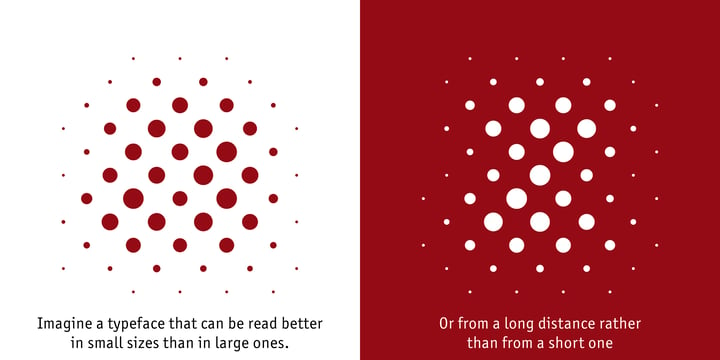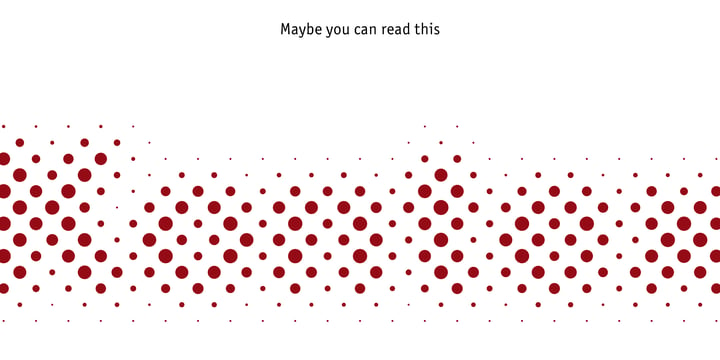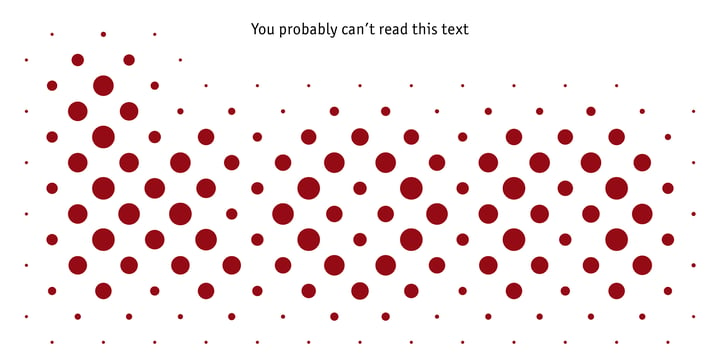Kontext Dot fonts from Elster Fonts - (vheni)

Imagine a font that is easier to read the smaller it is – or the further away the text is. There are already many rasterised fonts, I wanted to take it to the extreme and use as few dots as possible. The result is a typeface that lives up to its name.
Each individual circle makes no sense on its own; individual letters are only recognisable in the context of all associated circles, individual letters are most likely to be recognised in the context of whole words.
Attached to a building wall, text would be readable from a great distance and become increasingly difficult to decipher the closer you get to the building. Placed on the ground or on a large flat roof, text would only be readable from a higher building, an aeroplane or - depending on the size - in Google Earth.
Kontext has old style figures, superscript numerals, case-sensitive questiondown and exclamdown and an alternative ampersand, 390 glyphs at all.
Use the same value for font size and line spacing to keep the lines in the grid, or change the line spacing in 10% steps.
Change the spacing in 100-unit increments to keep the grid.
The numbers in the family- and style-names refer to the (ca.) grey value of the respective background and the font itself.
Kontext Dot 00-33 has e.g. a white background (0%) and 33% grey value. Kontext Dot 66-33 has a 66% background and 33% grey value.
»Positive« styles (first number smaller than the second number) have kerning, »negative« styles (first number bigger than the second number) can have none.

